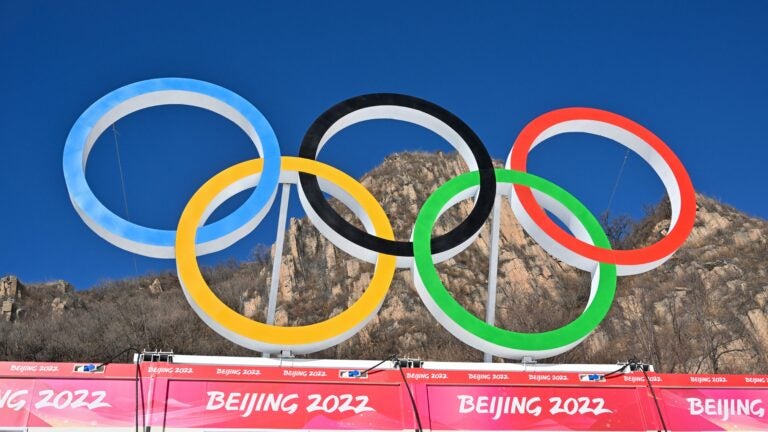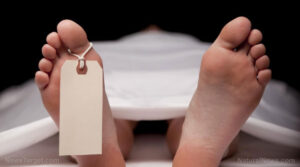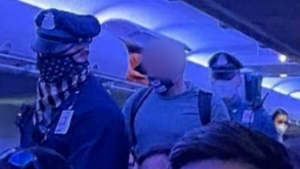Olympics
The opening ceremonies take place at 7 a.m. Eastern time Feb. 4 and NBC will air a recording at 8 p.m. Eastern time.
The Opening Ceremonies of the 2008 Beijing Summer Olympics were a spectacle in every sense of the world, with thousands of performers taking the 91,000 people in attendance and billions watching worldwide “on an elaborate journey through this country’s rich history,” as The Washington Post wrote.
The Olympics return to Beijing this year, this time for the Winter Games, and organizers are promising a more muted affair considering the shaky state of the world. Here’s what we know about this year’s Opening Ceremonies.
Q: When are the Opening Ceremonies?
A: The Opening Ceremonies will take place at 7 a.m. Eastern time Feb. 4. Beijing is 13 hours ahead of the East Coast of the United States.
Q: How can I watch the Opening Ceremonies on television?
A: NBC will air the Opening Ceremonies live, with its coverage beginning at 6:30 a.m. Eastern on Feb. 4. NBC also will air a recorded version of the Opening Ceremonies in prime time starting at 8 p.m. Eastern, with a focus on Team USA, the parade of nations and the performances at the event.
Q: How can I watch the Opening Ceremonies on a streaming service?
A: The Opening Ceremonies will stream on Peacock, the NBC Sports app and NBCOlympics.com (a cable subscription is required for the latter two).
Q: How long are the Opening Ceremonies?
A: According to a Xinhua News Agency report from early January, the Opening Ceremonies will last about 100 minutes because of the coronavirus pandemic and cold weather. That’s significantly shorter than previous Opening Ceremonies (last year’s Summer Olympic lid-lifter in Tokyo and the 2008 Opening Ceremonies lasted four hours apiece).
Q: Where are the Opening Ceremonies taking place?
A: The Opening Ceremonies will take place at Beijing’s National Stadium, also known as the Bird’s Nest. The stadium also hosted the Opening Ceremonies for the 2008 Beijing Summer Olympics.
Q: Will fans be allowed at the Opening Ceremonies?
A: Beijing organizers announced Jan. 17 that only “selected” Chinese residents will be permitted at Olympic events because of the ongoing pandemic, with no tickets sold to the general public or to foreign visitors. That means the stands likely will be largely empty for the second straight Olympics after fans were barred from attending events last summer in Tokyo.
Q: What is included in the Opening Ceremonies?
A: Chinese filmmaker Zhang Yimou, who directed the 2008 Opening Ceremonies, is back to do the same this year and is promising a simpler affair. There will be 3,000 performers, as compared with 15,000 in 2008. He also said the themes of the ceremonies will reflect the current state of the world.
“In 2008, the Olympics was a brilliant stage and chance for our country to show ourselves,” he said. “It’s different now. China’s status in the world, the image of the Chinese, and the rise of our national status, everything is totally different now.”
Yiannis Exarchos, the chief executive of Olympic Broadcasting Services who has seen dress rehearsals, still expects plenty of spectacle.
“Obviously I will not say what is in the Opening Ceremony because I don’t want to spoil the experience for any of you,” he said Jan. 20. “What I can tell you is it is a ceremony which is probably equally impressive as the one in 2008, which we know is one of the most iconic Opening Ceremonies in the history of the Olympic Games.
“It’s equally impressive, equally moving but completely different and it reflects our times.”
Apart from the pageantry, the Opening Ceremonies also will include the usual formalities as dictated by the International Olympic Committee, with speeches from officials, the parade of athletes and the lighting of the Olympic cauldron.
Q: Who is performing at the Opening Ceremonies?
A: The Opening Ceremonies will include approximately 4,000 performers, down significantly from the 15,000 who performed at the Opening Ceremonies of the 2008 Beijing Summer Olympics. Most of the performers will be teenagers.
Q: How does the parade of nations work?
A: As dictated by Olympic tradition, Greece will enter the stadium first even though it usually produces very few Winter Olympic athletes (there were four Greeks at the 2018 PyeongChang Games: two downhill skiers and two cross-country skiers). The countries then will file in based on an order set by the Chinese language.
As is custom, the host of the next Winter Games (Italy) will be the penultimate country to enter the stadium, just ahead of host China.
Q: When will the U.S. athletes enter?
A: The U.S. athletes will enter the stadium 55th out of 87, right after the Russian Olympic Committee athletes and just ahead of those from Thailand.
Q: Who are the U.S. flag bearers?
A: In a tradition started at last year’s Tokyo Summer Olympics, the IOC is allowing each nation to have two flag bearers: one man and one woman. In Beijing, women’s speedskater Brittany Bowe and men’s curler John Shuster will carry the U.S. flag in the Parade of Nations.
Four-time Olympian Elana Meyers Taylor (bobsled) originally was elected to carry the U.S. flag by her Olympic teammates, but she tested positive for coronavirus and will not be able to attend the Opening Ceremonies while in isolation. Bowe, who finished second in the voting, will take her place.
“Taking on this responsibility is the honor of a lifetime,” Bowe said in a statement, “and I will proudly carry the American flag on behalf of Elana, her family and all of Team USA.”
Q: Who are some notable international flag bearers?
A: A few nations have announced who will be carrying their flags at the Opening Ceremonies:
China: Zhao Dan (skeleton) and Gao Tingyu (speedskating)
Denmark: Madeleine Dupont (curling) and Frans Nielsen (ice hockey)
France: Tessa Worley (Alpine skiing) and Kevin Rolland (freestyle skiing)
Netherlands: Lindsay van Zundert (figure skating) and Kjeld Nuis (speedskating)
Italy: Sofia Goggia (women’s downhill)
Japan: Arisa Go (speedskating) and Akito Watabe (Nordic combined)
Mexico: Sarah Schleper (women’s Alpine skiing) and Donovan Carrillo (figure skating)
Philippines: Asa Miller (men’s giant slalom)
South Korea: Kim Min-sun (speedskating) and Kwak Yoon-gy (short-track speedskating)
Q: Who will light the Olympic cauldron?
A: Like many other details of the Opening Ceremonies, the identity of the person who will light the Olympic flame has yet to be revealed. The duty traditionally has been performed by a person from the host nation, either an athlete or someone who personifies the Olympic ideal. At the 2008 Beijing Summer Games, gold medal-winning gymnast Li Ning memorably lit the flame while being whisked around the top reaches of the stadium via hidden wires.
Zhang has hinted that he has settled upon a “totally innovative” way to light the Olympic cauldron this year. “People will be surprised,” he told Xinhua.
Get the latest Boston sports news
Receive updates on your favorite Boston teams, straight from our newsroom to your inbox.









